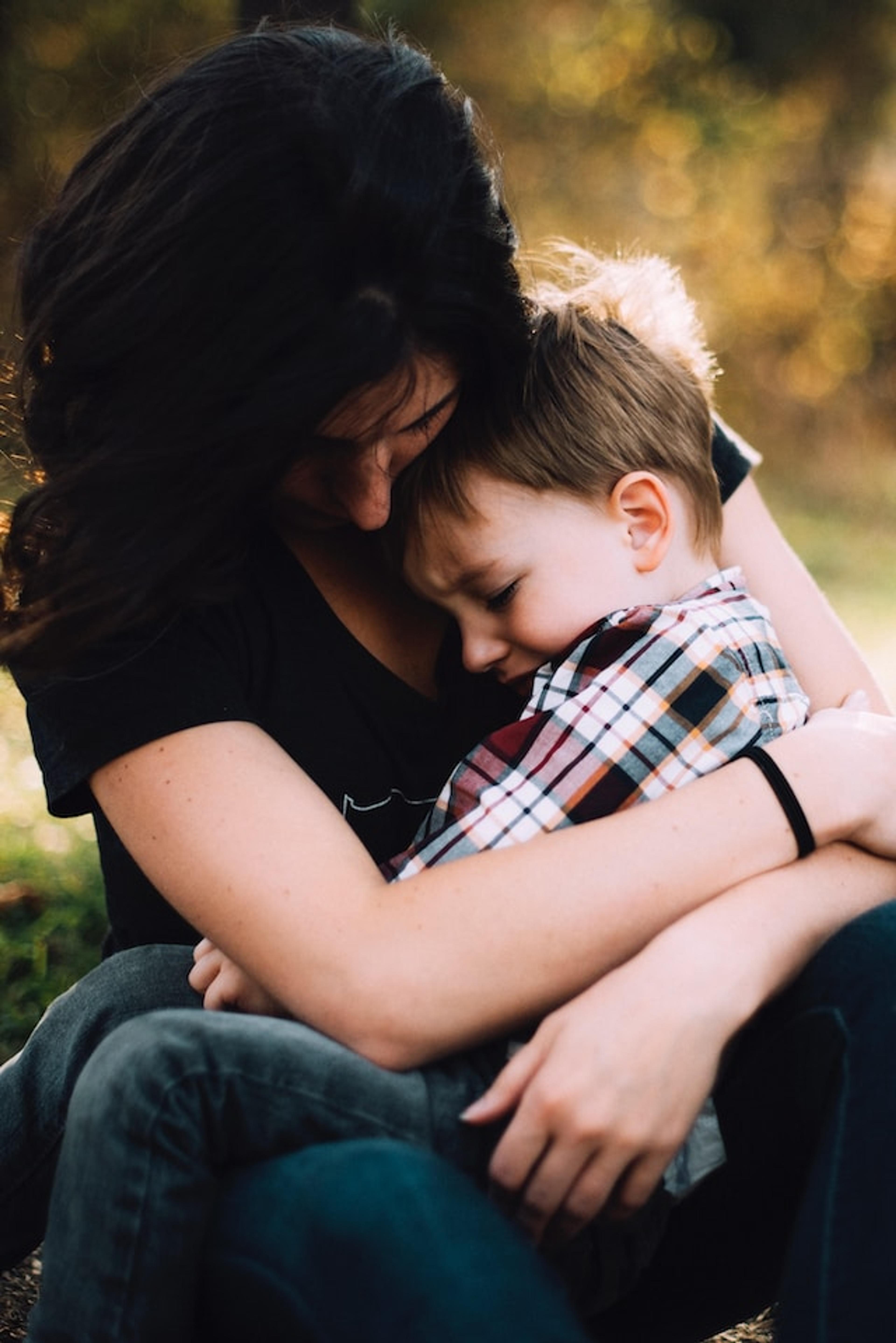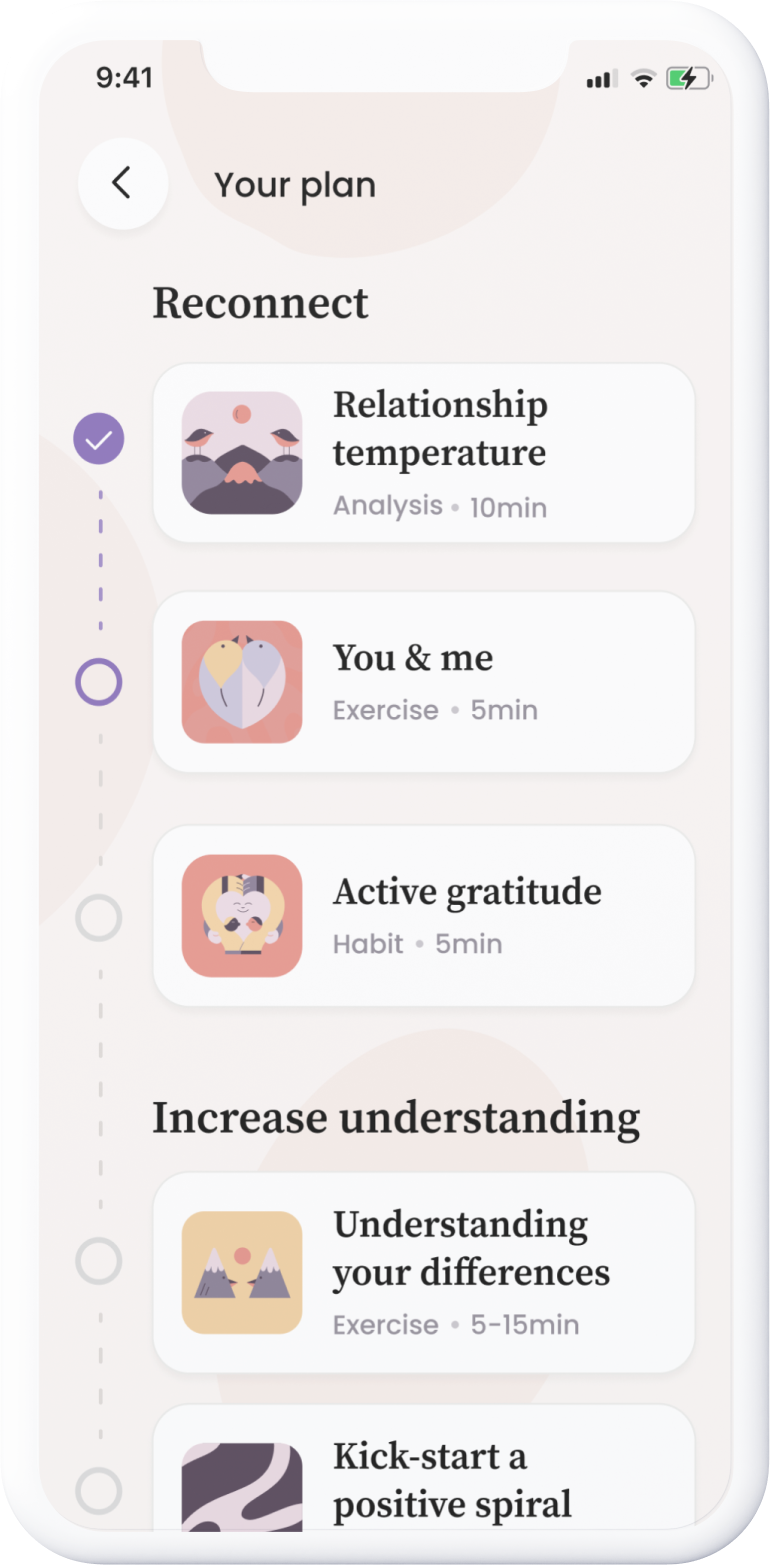When You and Your Partner Disagree about Having Children
How to handle it the dilemma of divergent desires for parenthood- 2 May 2024
- 8min

What to do if you disagree about having children?
Entering a romantic relationship is often accompanied by dreams of shared futures, but what happens when one partner envisions a life with children while the other envisions a child-free existence? Or when one partner is eager to start the journey of parenthood immediately, while the other prefers to wait longer?
“How do I deal with my partner not wanting children?” or “How do I talk to my partner about not wanting kids?”. Having kids or not is a dilemma that many couples face, especially as they approach their 30s—a critical juncture where discussions about the future become more urgent.
In this blog post, we'll delve into the challenges posed by divergent desires for parenthood. We will share our best tips on how to navigate this complex and emotionally charged situation when you disagree about having children.
“My partner doesn't want kids” or “My partner really want kids, but I don’t”
Reaching one's 30s often brings a heightened awareness of the biological clock, prompting individuals to confront their feelings about parenthood.
When you have a desire for children and your partner doesn't want kids, the relationship encounters a crossroads fraught with emotional complexity. The dilemma is not merely a matter of compromise; it involves reconciling deeply personal values and envisioning futures that may be fundamentally different.
Disagreement about having children are a central concern for many couples, the complexities of romantic relationships can also emerge in discussions about when to start a family and how many children to have. These nuanced aspects add another layer to the already intricate landscape of divergent desires within a relationship.
Types of divergent desires when it comes to children
Uncertainty about parenthood
One partner is uncertain about becoming a parent and having kids, while the other is eager to embrace parenthood. This can stem from various reasons, for example past experiences, values and priorities related to parenthood or past trauma or fears associated with parenting/children.
Differing timelines
Couples may find themselves at odds when it comes to the timing of parenthood. One partner might feel a sense of urgency due to biological factors, career considerations, or personal goals, while the other may wish to delay parenthood for various reasons. The "Biological clock awareness" - recognition of the biological clock becomes a factor, with the woman in the 30s feeling the urgency to have children before it's too late.
Family size disparities
Beyond the decision to become parents, the number of children a couple envisions can also be a source of contention. Some individuals may dream of a large, bustling family, while their partners may prefer a smaller, more intimate one. Our own perspective on the matter is not constant; it can change over time. For example, if one has experienced the challenges of parenthood, they may no longer envision a future with more children than they already have, despite previously dreaming together of a large family with at least three children
Family values and impact on lifestyle
Discussions about family planning often extend to considerations about lifestyle changes. Couples may grapple with questions about how parenthood will affect their careers, social lives, and personal pursuits. They might found theirselves have different values and priorities related to parenthood and family life.
Navigating the challenge together
What to do when you disagree about having children? What if your partner doesn't want kids but you do? What should you do if you're inclined to wait for a couple of years, yet your partner is eager to begin the journey of parenthood right away?
1. Explore your own feelings and thoughts regarding having children
Take some time to reflect on why this is important for you and what contributes to your experience. Are their societal norms and external expectations influencing your decision about having kids? Are there any fears or past history that is making you think and feel as you do?
Before the next step, consider what is important for your partner to know about what’s influencing you.
2. Understanding each other
Open and honest communication is key when facing this disagreement about having children. It’s necessary for both partners to be vulnerable and express their desires, fears, and concerns authentically. And for both partners to meet each other with empathy and active listening.
Understanding each other's perspectives is crucial for building a foundation of mutual respect and compassion. This isn't about convincing the other person to change their mind; it's about creating a space where both individuals feel heard and understood. Without this deepened understanding of each other, it’s really hard to make decisions about your future together.
3. Exploring compromise
While compromise is essential in any relationship, finding middle ground on the issue of parenthood may prove challenging. Could the two of you together aim to explore creative solutions that respect both partners' desires?
This could involve revisiting the conversation periodically, seeking support from a diverse community, or considering alternative paths to parenthood. Couples may find that they need to redefine their expectations and be open to unconventional solutions. The key is to approach the situation with flexibility and a willingness to adapt to each other's needs.
4. Decision-making and moving forward
In the end - this is an important decision each partner has to take on their own. In some cases, couples may find that their desires for the future are fundamentally incompatible.
Questions that may arise include:
- Will I regret staying in a relationship where I cannot have children, something I have wished for and longed for?
- Should I leave my partner even though I love them because we have such different opinions on whether we want children or not?
- Will I have the strength to stay in a relationship where this is a recurring issue that causes disagreement and difficult emotions for both of us?
No easy questions, and they partly concern future scenarios that are uncertain for us in the present. Part of this involves deciding here and now if you're willing to remain in the relationship a little bit longer, accepting the dilemma you're facing.
Making the decision to part ways is a difficult but it is a valid choice to consider if the relationship reaches a point where both partners cannot find a resolution that feels fulfilling for both. It is crucial to approach such decisions with mutual respect and understanding, recognizing that different life goals do not diminish the value of the time spent together.
Seeking professional guidance might be needed
Navigating this dilemma when you disagree about having children may require the assistance of a trained professional, such as a couples therapist or a relationship counselor. Especially if you find it difficult to talk about it together, or if you've had the discussion so many times that you feel stuck.
A therapist can provide a neutral and supportive environment for both partners to explore their feelings and fears about parenthood and couples counseling can be beneficial in facilitating a constructive dialogue. It allows individuals to explore their values, fears, and hopes while providing a framework for understanding the impact of their decisions on the relationship.








